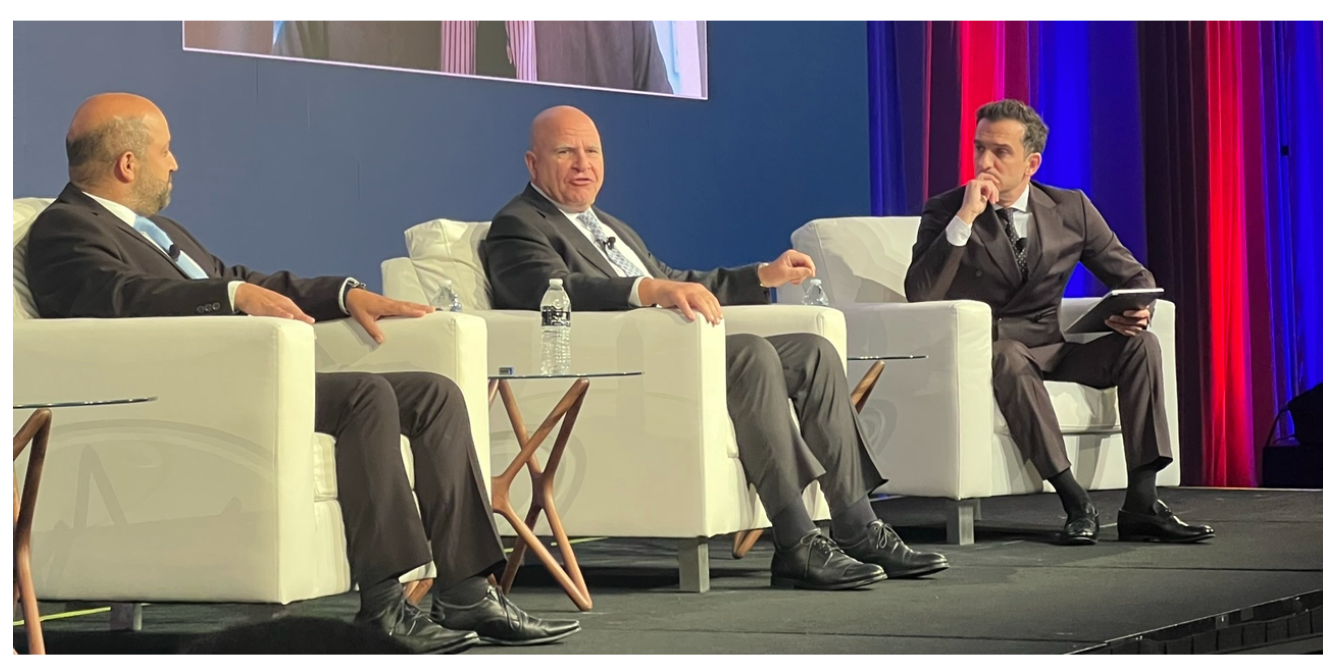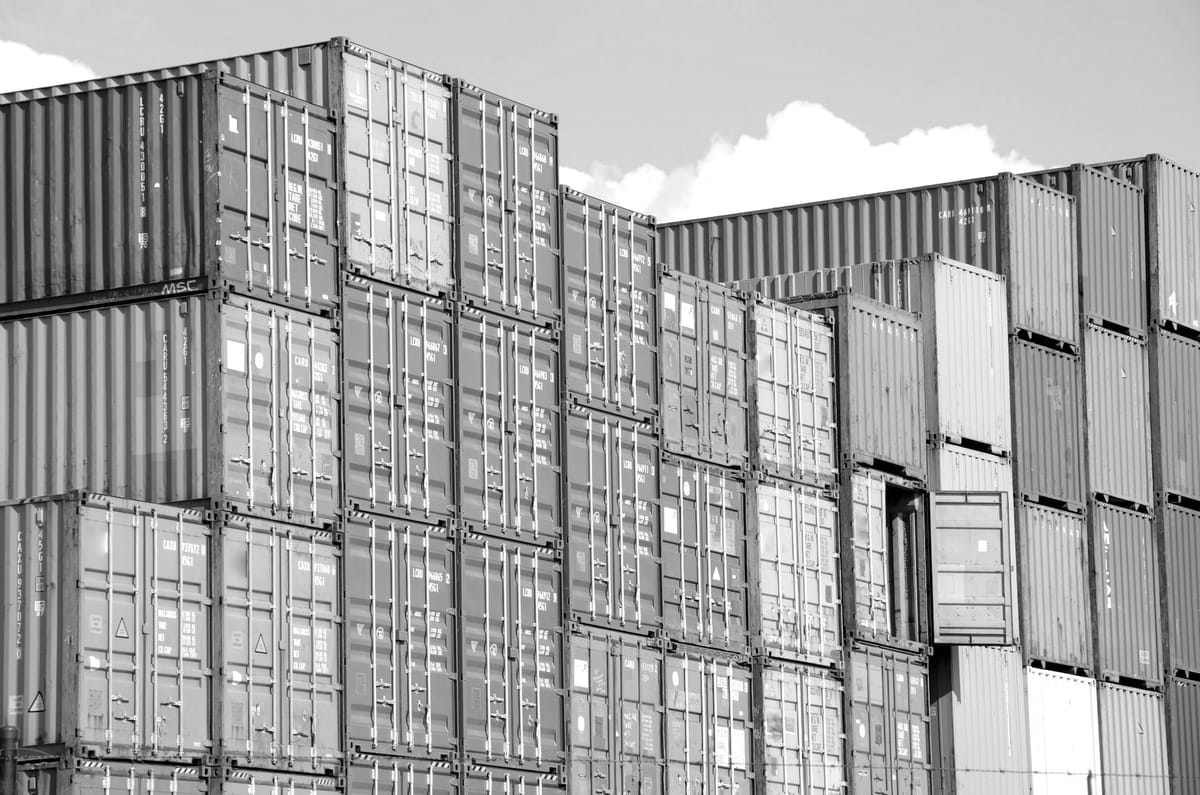Last week, we attended the third Global Emerging Technology Summit hosted by SCSP, a non-partisan US think tank and private foundation focused on technology and security formed by Eric Schmidt (ex-CEO @ Google). It brought together 68 leaders from government, tech industry, and other sectors to address the rapid advances in advanced emerging technologies and their geopolitical implications, particularly in the context of conflicts like the Russia-Ukraine war. We were fortunate to be seated in the front row, up close and personal with top politicians (US Senator Chuck Schumer), military leaders (US General HR McMaster) and business magnates (NVIDIA CEO Jensen Huang).

This year's Summit highlighted the notion that innovation, especially in technology, is becoming a dominant force in global power dynamics. Key takeaways included: the US government's focused efforts on tech leadership and collaboration with non-governmental partners; increasing transatlantic cooperation; and the proactive roles American tech giants are taking to align with US government priorities. Notably, tech leaders like NVIDIA's CEO emphasized the systemic nature of AI, and Intel's CEO highlighted the national importance of industrial policy, pointing to a future CHIPS Act II.
If you’d like to learn more, please reach out. We have been working hard to strengthen our relationships in Washington via private events like the one above, strategic meetings with industrial lobbying groups, and select meetings with embassy representatives from key countries relating to our investment thesis.
Nuclear is moving even faster than we expected (and we expected it to be fast)
Poland has begun the construction of a fleet of large reactors, posing an economic challenge to Germany, which previously relied on cheap energy from brown coal, Russian pipeline natural gas, and its efficient nuclear reactors. As we’ve described in the past, Germany’s Energiewende Policy, with its decision to phase out nuclear power, has several drawbacks for the country. First, the abrupt decommissioning of nuclear plants has led to increased dependence on coal and natural gas, causing a rise in carbon emissions. Second, the nuclear phase-out has made Germany more reliant on energy imports, notably gas from Russia, further harming the country’s energy security. This uncertainty is pushing industrial capital expenditures out of Germany (a major blow to an economy reliant on industrial exports). Additionally, while renewables are being ramped up, the intermittent nature of solar and wind energy requires backup power sources, often fossil fuels, which can drive up electricity prices and challenge grid stability.
In contrast, Poland has secured a new gas pipeline from Norway and is investing in nuclear energy TODAY, making it an attractive location for German industries. Now that the Nord Stream pipelines are inaccessible, Germany is accessing most of its liquified gas from expensive ships (mostly from Russia). Thus, industrial businesses in Germany face energy price disadvantages compared to competitors in countries like France with a strong nuclear fleet and cheaper energy. This energy shift, initiated by Germany's decisions, will have long-lasting impacts throughout the century.
The rapid movement towards adopting nuclear power is also reflected in the Middle East. The UAE is leading, having already built three reactors with a total output of 4+GWe and another 1.3+GWe reactor under construction. However, Saudi Arabia just took historically unprecedented steps towards civilian nuclear power. This past week, the Kingdom agreed to increase transparency with tighter checks from the IAEA.
This lines up perfectly with our upcoming Riyadh trip with Transmutex CEO, Franklin Servan-Schreiber (invited to speak at FII with ACWA Power CEO Marco Arcelli) and our thesis on clean base-load power for the Kingdom. The ability to provide access to cheap, reliable energy provides a strong foundation for a country’s industrial base and can drive further investment interest (the inverse of what is occurring in Germany). The time-lag between deciding to build these plants that take 5+ years to construct means export-seeking countries must act now to meet growing domestic production needs into the 2030s and beyond.
Announcement: Backing the Foundational Freight Intelligence Platform
The U.S. trucking industry faces an alarming inefficiency: despite a shortage of 80,000 truck drivers, trucks spend 35% of their journeys empty (known as deadhead miles). This is significant economic drag driving outsized environmental repercussions. The resultant 150m tons of CO2 emissions and the staggering $7 trillion in undelivered goods highlight the immediate need for intervention. This inefficiency is exacerbated by the fragmented nature of the freight market, which consists of over 500,000 carriers growing at 10% annually. Unfortunately, due to the widespread data silos across these fleets, no one has successfully aggregated real-time freight data across all operators that would allow one to begin to address these growing problems.
This post is for subscribers on the Steel Atlas and Steel Atlas Exclusive tiers only.
Subscribe now and have access to all our stories, enjoy exclusive content and stay up to date with constant updates.

